By : Ahmed Abduli Malik, Senior Lecturer in Faculty of Leadership and Management, Universiti Sainis Islam Malaysia
Abstract
Also Read: Be Careful of the Trap of Deploying Peacekeeping Forces to Gaza
The mass media across cultures are propaganda systems for those who own or control them. But the Western media lead the world in silencing one ultimate issue confronting all peoples on Earth – the despoliation of the world’s life support systems by transnational corporate globalization. They talk only of climate warming’, not destabilization of planetary life cycles at every level. They promote only market-growth solutions which are known not to work. But the Modern world is suffering a terrible crises, a multiple problem; From climate change to the war on terror, financial meltdowns to forced migrations, pandemics to world poverty and humanitarian disasters to the denial of human rights, these and other crisis represent the dark side of our globalized planet. The researcher discovered that those are the real Global crises that the Media should deal with, they are endemic to the contemporary global world and so highly dependent on the world’s media.
A central focus of the paper is the potential role of the media in providing a cosmopolitanist outlook to their audiences, encouraging or discouraging cosmopolitan identifications, especially when engaging with global crises and disasters. The Descriptive method has been used to fulfill the nature of the study which is Analytical and Critical Study.
Keywords: role of Media, Global crisis, propaganda, world poverty, humanitarian disasters
Also Read: The Forty-Four-Days of Glory: Azerbaijan’s Struggle for Justice and Peace
Intoduction
It is obvious to everyone that there are disastrous situations that shaking the entire world, East and West. This disastrous situations or in other therm Global crisis can be divided in three catigories; Financial dicrisis, security crisis and moral crisis or Europe’s Refugee Crisis. It is a serious event that is giving the politicians, decision makers, prominent thinkers and economists sleepless nights. It is a huge calamity that is very complex and has many implications, which explains the great turmoil being experienced by scholars, economists and politicians, and it also explains why so much is being written about it, analysing it from different points of view. They are in a state of great confusion, and some of them have started to blame one another for what has happened.
Curiosity is a human nature and hence people turn to different sources of information to satisfy their hunger. As the centuries pass by, more and more information is being available, whether through word of mouth, traditional media, or through mainstream digital media. Open data is the new source of information that provides people with the opportunity to have access to a wide network of knowledge, which they can use to their advantage. Having easy access to all this knowledge empowers citizens to be aware of their surroundings, be critical thinkers and civic developers, and be able to make sound and clever decisions about their life and community.
Also Read: Palestine Solidarity Month: A Collective Movement for Al-Aqsa and Palestine’s Freedom
although, the world is experiencing a multi problem situation wich all can be summarized in three categories; Financial crisis, security crisis and moral crisis or Europe’s Refugee Crisis. This paper will study them in the light Media.
BASIC EPISTEMOLOGICAL CONCEPTS
Definition media
Also Read: Hassan al-Turabi: A Controversial Thinker from Sudan
Media is the system and organizations of communication through which information is spread to a large number of people (Merriam-Webster, 2006). it also means a communication channels through which news, entertainment, education, data, or promotional messages are disseminated. Media includes every broadcasting and narrowcasting medium such as newspapers, magazines, TV, radio, billboards, direct mail, telephone, fax, and internet. Media is the plural of medium and can take a plural or singular verb, depending on the sense intended.
Definition Crisis
a crisis refers not necessarily to a traumatic situation or event, but to a person’s reaction to an event. One person might be deeply affected by an event while another individual suffers little or no ill effects.
How do difference experts define crisis? A number of different approaches and definitions exist. Many focus on how a person deals with the event rather than with the event itself.
Also Read: Who Exactly is the RSF Group Shaking Sudan?
- “People are in a state of crises when they face an obstacle to important life goals—and obstacle that is, for a time, insurmountable by the use of customary methods of problem-solving.” (Caplan, 1961)
- “…an upset in equilibrium at the failure of one’s traditional problem-solving approach which results in disorganization, hopelessness, sadness, confusion, and panic.” (Lillibridge and Klukken, 1978)
- “…crisis is a perception or experience of an event or situation as an intolerable difficulty that exceeds the person’s current resources and coping mechanisms.” (James and Gilliland, 2001).
Types of Psychological Crisis
We often think of a crisis as a sudden unexpected disaster, such as a car accident, natural disaster, or another cataclysmic event. However, crises can range substantially in type and severity.
A few different types of crises include:
Also Read: The Two-State Solution (Palestine–Israel) in Historical Perspective
Developmental crises occur as part of the process of growing and developing through various periods of life.
Sometimes a crisis is a predictable part of the life cycle, such as the crises described in Erikson’s Stages of Psychosocial Development (Erikson, E.H. , 1968).
Situational crises are sudden and unexpected, such as accidents and natural disasters. Getting in a car accident, experiencing a flood or earthquake, or being the victim of a crime are just a few types of situational crises.
Existential crises are inner conflicts related to things such as life purpose, direction, and spirituality. A midlife crisis is one example of a crisis that is often rooted in existential concerns.
Also Read: Enchanted by K-Dramas, Dragged into Slander: Time for Muslims to Rise!
A crisis can sometimes be quite obvious, such as a person losing his or her job, getting divorced, or being involved in some type of accident. In other cases, a personal crisis might be less apparent but can still lead to dramatic changes in behavior and mood. The American Psychological Association suggests that common signs of a mental health crisis include dramatic shifts in sleep habits, sudden changes in mood, withdrawal from normal activities, decreased performance at school or work, neglect of personal hygiene and changes in weight(Erikson, E.H. , 1963).
The crisis is real
The financial crisis seems as most terrible and scaring problem nowadays, it exploded this year and led to the collapse of major banks and financial institutions; international stock markets have declined, trillions of dollars have evaporated, billions have disappeared from the financial markets, many countries in the world have hit rock bottom, millions have lost their wealth, be it in the form of shares, savings or investments; the investments of the American people in the stock markets have lost $4 trillion. This crisis has become like a tsunami, striking the economies of many countries. The financial crisis was caused by excessive debt. With banks lending too much and pushing up house prices, eventually ordinary people could no longer afford to keep up with the burden of debt.
Also Read: Creating Opportunity and Avoiding Misery; Lesson Learn on Waste Recycling Issue
By October 2009, Greece faced a sovereign debt crisis and a borrowing crisis and it was said to be putting the Eurozone at risk. After much delay, the EU Commission together with the European Central Bank (ECB) and the IMF formed a hybrid tripartite entity, the so called “Troika,” to deal with the indebted country. This act raised the stakes since it converted the crisis to an issue of intense global media attention, influence and spin. The Greek people entered thus into the epicentre of a ferocious global publicness (Sophia Kaitatzi-Whitlock, 2014).
The financial crisis exploded this year, but the media industry has published its business sections, websites, TV programmes and magazines for eons. Did the press fail to shine a bright enough spotlight on the dismal economic outlook? Were financial journalists too dazzled by the glittering market to predict the coming storm?
Sources are another major challenge for financial reporters. It is essential to dig into and examine important data before making it public.
Journalists might have become too close to their sources. In some cases, the interests of their newspaper might have manipulated reporters. However, many journalists are currently working under the pressure of a 24-hour news cycle. They have to compete with one another. Timing has become so crucial that journalists might not have time to distance themselves from their own sources.
Also Read: Between the Treaty of Hudaybiyyah and Ceasefire in Gaza
We must all agree that responsibility and professionalism are principles that any journalist has to keep in mind when doing his job. Any information requires a detailed verification procedure before it is published.
“Since adoption of equity-based financing has significant implications on Islamic bank risk management, it is suggested that Islamic banks adopt a gradual approach in applying the equity-based financing in their business model. Several studies highlighted that the almost exclusive reliance on debt-based financing is one of the serious problems facing the Islamic banking industry (Ahmed, 2010; Beck et al., 2012; Siddiqi, 1985).
It is necessary to be mentioned that when the globe is experiencing the crisis indicate that both the Islamic and conventional banking systems are vulnerable to financial shocks. This is contrary to the popular belief that the Islamic financial system is sheltered from the financial shocks due to its interest-free nature.
Also Read: Peace Cannot Be Achieved Without a Palestinian State
The media and Islamic financial System
The role of Media is not intended to provide psychotherapy, but instead to offer short-term intervention to help people receive assistance, support, resources, and stabilization.
The financial journalists should not differ from that of journalists covering politics, culture or sports. We all must write well. We must analyse information in a clear, fast, concise and accurate manner.
Financial journalists in particular must try to see the turmoil coming. Their task is not necessarily reactionary. They must track and advise their audiences about coming events and trends. Then, in the aftermath, they must follow events and make sure longterm implications are covered.
The media should indroduce an Islamic financial System to the warld in a way that it can be accpted, Islamic financial system can be the solution based on well known tha it is one of the fastest growing segments of the global financial industry. Islamic finance in some countries has become systemically important and, in many others, it is too big to be ignored. It is estimated that the size of the Islamic banking industry at the global level was close to $820 billion at end-2008. The largest Islamic banks are located in the countries of the Gulf Cooperation Council (Bahrain, Kuwait, Oman, Qatar, Saudi Arabia, and the United Arab Emirates).
While Islamic banks play roles similar to conventional banks, fundamental differences exist between the two models. The main difference between Islamic and conventional banks is that the former operate in accordance with the rules of Shariah, the legal code of Islam. The central concept in Islamic banking and finance is justice, which is achieved mainly through the sharing of risk. Stakeholders are supposed to share profits and losses, and charging interest is prohibited.
There are also differences in terms of financial intermediation, the paper notes. While conventional intermediation is largely debt based, and allows for risk transfer, Islamic intermediation, by contrast, is asset based, and centers on risk sharing. One key difference between conventional banks and Islamic banks is that the latter’s model does not allow investing in or financing the kind of instruments that have adversely affected their conventional competitors and triggered the global financial crisis. These include toxic assets, derivatives, and conventional financial institution securities.
The financial crisis in perspective of Islam
The woodworm of riba and haraam financial conduct has eaten away the stick on which the Western world was leaning and giving the world the impression that it was strong and standing upright, when in fact it was leaning on a stick that was rotten from the inside so when it fell it became clear to the jinn and mankind, east and west, that the structure was hollow and the foundations were rotten and cannot be saved or restored. The German Minister of Finance, Peer Steinbrueck, stated: “The world will never go back to the way it was before the crisis.”
Allaah declares war on riba: “O you who believe! Fear Allaah and give up what remains (due to you) from Ribaa (from now onward) if you are (really) believers. And if you do not do it, then take a notice of war from Allaah and His Messenger …” [al-Baqarah 2:278-279]
This war is being manifested today in many ways: on hearts and minds, on abundance and prosperity, on wealth and power, happiness and peace of mind.
It is a war of worries and fear, destroying and crushing as a result of this abhorrent riba-based system, that is still being waged until today, consuming everything in its path(Muhammad Saalih al-Munajjid, 1997).
Today they are affected by depression, anxiety, frustration and nervous breakdowns as a result of the financial crisis, to such an extent that the American psychologist Nancy Molitor said: “I have never in twenty years of practising this profession seen a day like this. The levels of anxiety break all records.”
It has reached a level where murders and suicides are taking place as a result of the pressure of this crisis. “Allaah will destroy Riba” [al-Baqarah 2:276]
Destruction is both tangible and intangible. It takes away the blessing of wealth so that a person does not benefit from it, or it takes away the wealth altogether, as we have heard about the evaporation of $2 trillion in five days from the American pension funds. The crisis has led to the disappearance of sixteen banks, including the IndyMac bank which was controlling assets worth $32 billion and deposits worth $19 billion. In fact bankruptcy proceedings have been brought against seven major banks in Europe(Muhammad Saalih al-Munajjid, 1997).
Some analysts expect more than 110 banks could be closed down, with assets reaching around $850 billion, by the middle of next year.
Security crisis
Pandemics and epidemics have ravaged human societies throughout history. The plague, cholera, and smallpox killed tens of millions of people and destroyed civilizations. In the past 100 years, the “Spanish Flu” of 1918–1919 and HIV–AIDS caused the deaths of nearly 100 million people.
Advances in medicine have transformed our defenses against the threat of infectious disease. Better hygiene, antibiotics, diagnostics, and vaccines have given us far more effective tools for preventing and responding to outbreaks. Yet the severe acute respiratory syndrome (SARS), the Middle East respiratory syndrome (MERS), and the recent West African Ebola outbreak show that we cannot be complacent Infectious-disease outbreaks that turn into epidemics and potential pandemics can cause massive loss of life and huge economic disruption(Peter Sands at, el., 2016)
Indeed, Ebola demonstrated how ill-prepared we are for such infectious-disease crises. There were failures at almost every level. Identifying the outbreak in the community and raising alerts took too long. Local health systems were quickly overwhelmed. Response teams did not adequately engage communities and deepened distrust in health authorities. The international response was slow, cumbersome, and poorly coordinated. Rapid diagnostics, protective equipment, effective therapeutics, and a vaccine were lacking. Ultimately, the crisis was contained, thanks to the courage and commitment of medical staff and communities on the ground and a massive deployment of international resources. Yet the cost in human lives and economic and social disruption was far greater than it should have been(Peter Sands at, el., 2016).
According to US Secretary of State (John Kerry, 2015) he warned that climate change was a threat to global security and has inflamed volatile situations from Europe’s migration crisis to the Syrian conflict. “Climate change is perhaps the most significant threat to global food security today. Make no mistake: the implications here extend well beyond hunger,” he said just weeks before a key world climate conference in Paris.
“This isn’t only about food security; it’s about global security, period,” he said during a speech at Milan’s 2015 Expo.
Kerry said it was “not a coincidence that, immediately prior to the civil war in Syria, the country experienced the worst drought on record”, sparking the migration of some 1.5 million people “that intensified the political unrest that was beginning to brew”.
“I’m not suggesting the crisis in Syria was caused by climate change, obviously, it wasn’t. It was caused by a brutal dictator who barrel bombed, starved, tortured, and gassed his own people.
“But the devastating drought clearly made a bad situation a whole lot worse,” he said.
He described climate change as “threat multiplier”.
Kerry cited the mass migration to Europe as an example of a crisis provoked partly by climate change—which he warned will get significantly worse if large parts of the world become uninhabitable due to global warming.
“Here in Europe, you’re in the middle of one of the worst refugee crises in decades.
“Unless the world meets the urgency of this moment, the horrific refugee situation we’re facing today will pale in comparison to the mass migrations that intense droughts, sea-level rise, and other impacts of climate change are likely to bring about,” he said.
Kerry’s call comes ahead of the UN’s COP21 conference in November which aims to secure a pact on greenhouse gases that would limit global warming to two degrees Celsius (3.6 degrees Fahrenheit) over pre-industrial times.
The White House has made tackling climate change a priority, despite stern opposition from the Republican-controlled Congress(John Kerry, 2015).
The last big push for a world climate deal was in Copenhagen in 2009. It nearly ended in a fiasco after rich and poor countries bickered over how to share the burden for addressing the problem.
The guidelines for Media Professionals
Members of the Society of Professional Journalists believe that public enlightenment is the fore runner of justice and the foundation of democracy. Ethical journalism strives to ensure the free exchange of information that is accurate, fair and thorough. An ethical journalist acts with integrity.
The Society declares these four principles as the foundation of ethical journalism and encourages their use in its practice by all people in all media (Society of Professional Journalists. 2016).
- Seek Truth and Report It. Ethical journalism should be accurate and fair. Journalists should be honest and courageous in gathering, reporting and interpreting information.
- Minimize Harm. Ethical journalism treats sources, subjects, colleagues and members of the public as human beings deserving of respect.
- Act Independently. The highest and primary obligation of ethical journalism is to serve the public. Journalists should avoid conflicts of interest, real or perceived. Disclose unavoidable conflicts.
- Be Accountable and Transparent. Ethical journalism means taking responsibility for one’s work and explaining one’s decisions to the public. Journalists should explain ethical choices and processes to audiences. Encourage a civil dialogue with the public about journalistic practices, coverage and news content.
The Hutchins Commission added another five guidelines specifically for the press, as follows: (Straubhaar, LaRose & Davenport. P. 477).
- Present meaningful news, accurate and separated from opinion.
- Serve as a forum for the exchange of comment and criticism and to expand access to diverse points of view.
- Project “a representative picture of the constituent groups in society” by avoiding stereotypes by including minority groups.
- Clarify the goals and values of society; implicit was an appeal to avoid pandering to the lowest common denominator.
- Give broad coverage of what was known about society.
All of these guidelines are important because the press is needed to maintain a neutral viewpoint, providing the basic facts and allowing for readers to come up with their own opinions from the news that they report.
These guidelines inspired Society of Professional Journalists which is the current version of media ethics that were adopted in 1996, the matter of ethics in media professionals and communication is fact and even it is core of media itself, both media and ethics should move together side by side as mentioned by Stephen J.A. Ward (2014) that we are moving towards a mixed news media – a news media citizen and professional journalism across many media platforms. This new mixed news media requires a new mixed media ethics – guidelines that apply to amateur and professional whether they blog, Tweet, broadcast or write for newspapers. Media ethics needs to be rethought and reinvented for the media of today, not of yesteryear.
The Role of the Media in Europe’s Refugee Crisis
The media serves an important role in society insofar as it helps bring important issues to the attention of the community (Fourie, 2007: 202). In the case of the ongoing European refugee crisis, the media reporting has given the public insight into the refugees fleeing the Assad regime in Syria. Media coverage of the issue has, however, been mixed.
There has been some excellent coverage focussing on the harsh reality of the struggles faced by men and women, traversing Syria then Turkey, Greece, Macedonia, Serbia and beyond, in search of safety in Western Europe, often with young children in tow. While publications such as The Guardian and The Independent have, predictably, focussed on the human element of the crisis, the right-wing media have in general responded rather differently, focussing on national security. Publications such as The Daily Mail, The Sun, and The Daily Mirror received widespread criticism on social media for their use of dehumanising language when reporting on the refugee crisis. Instead of referring to the Syrians fleeing Assad as ‘refugees’ the right-wing media invariably referred to them as ‘migrants’. Al Jazeera even went as far as to make the editorial decision to not refer to those fleeing Syria as ‘migrants’. The difference in these two terms is crucial and the editorial decision to use one term over the other necessarily impacts on the tone of the article or feature that it relates to and therefore on how the public may respond to the report. The United Nations defines refugees as ‘persons fleeing armed conflict or persecution’. In contrast, migrants are defined as people;
who choose to move not because of a direct threat of persecution or death but mainly to improve their lives by finding work, or in some cases for education, family reunion, or other reasons.
The distinction is critical. If the media frame those fleeing Syria as migrants then it follows that the public and politicians is likely to be less inclined to offer their support, financial or otherwise, as they believe that people are moving not out of fear for their lives but rather for better paid work or an easier life (The role of the media in europes refugee crisis, 20/11 2015).
The Syria crisis is not the only circumstance where the UK’s media has portrayed migrants and refugees in a negative light, so much so that earlier in 2015 the UN’s High Commissioner for Human Rights issued a statement calling on British authorities, media and regulatory bodies to take steps to curb hate speech against these groups in British tabloids. In contrast, the media in France and Germany have been leading the calls for their countries to do more and criticising the British government for doing so little to help those in dire need.
Nevertheless, a turning point in the UK tabloid media’s reporting of the refugee crisis followed the death of Aylan Kurdi. The image of the three-year-old Syrian boy pictured lifeless and face-down in the sand in Turkey while fleeing Syria with his family was seen as a turning point in the response to the crisis. Tabloids stopped referring to refugees as ‘cockroaches’ and a ‘swarm’ and began to focus on the human cost of the crisis. Their dramatic u-turn did not go unnoticed with many comparing the coverage conducted only weeks apart. However, this change of heart has not lasted long and, following the terrorist attacks in Paris in recent days and reports that one of the attackers passed through Greece after disguising themselves as a Syrian refugee. While this naturally raises genuine questions surrounding the refugee policy that ought to be debated openly, the tabloid newspapers reverting to what they know best – fear-mongering – is unhelpful.
The media have provided a wide variety of coverage on the ongoing refugee crisis. Some has been balanced, others not so much. However, what is clear is the privileged position that the media inhabit and that they have a responsibility to provide, clear and unbiased information to the public. A failure to do this is very serious indeed and can have wide-ranging consequences, impacting on public opinion and therefore on our willingness to support those fleeing for their lives (The role of the media in europes refugee crisis, 20/11 2015).
The Media and Amnesty International
The media should join hand with amnesty international (AI) to promote the following:
- Opening up safe routes to sanctuary for refugees is one important solution. That means allowing people to reunite with their relatives, and giving refugees visas so they don’t have to spend their life savings and risk drowning to reach safety.
- It also means resettling all refugees who need it. Resettlement is a vital solution for the most vulnerable refugees – including torture survivors and people with serious medical problems.
Right now, 1.15 million people urgently need this lifeline. But so far, the world’s wealthiest nations are offering to resettle less than 10% every year. Amnesty estimates that 1.45 million refugees will need resettlement by end-2017.
- Saving lives. World leaders also need to put saving lives first. No one should have to die crossing a border, and yet almost 7,000 people drowned in the Mediterranean alone in the two years since the first big shipwreck in October 2013.
In May 2015, thousands of people fleeing persecution in Myanmar suffered for weeks onboard boats while Thailand, Malaysia and Indonesia bickered over who should help them.
States can stop this by investing in search and rescue operations and immediately helping people in distress.
- And whether they travel by land or by sea, people fleeing persecution or wars should be allowed to cross borders, with or without travel documents. Pushing people back and putting up massive fences only forces them to take more dangerous routes to safety.
- Stop trafficking and racism. All countries should investigate and prosecute trafficking gangs who exploit refugees and migrants, and put people’s safety above all else. Amnesty recently met survivors in Southeast Asia who said traffickers killed people on board boats when their families couldn’t pay ransoms. Others were thrown overboard and left to drown, or died from because there was no food and water.
- Governments also need to stop blaming refugees and migrants for economic and social problems, and instead combat all kinds of xenophobia and racial discrimination. Doing otherwise is deeply unfair, stirs up tensions and fear of foreigners, and sometimes leads to violence – even death.
In Durban, South Africa, at least four people died, many were seriously injured, and over 1,000 mainly Burundian and Congolese refugees forced to flee after violence and looting broke out in April and May 2015.
- Start funding ‘broke’ UN properly. “Financially broke” is how Antonio Guterres, the UN High Commissioner for Refugees, described UN agencies in September 2015. Wealthy countries quite simply aren’t keeping their high-profile promises to fund aid for refugees abroad.
For example, the UN has received less than half the funding it needs to support Syria’s 4 million refugees. This is now forcing 80% of refugees living outside camps in Jordan to do dangerous, degrading jobs or send their children out to beg.
South Sudan’s forgotten refugee crisis has been met with a pitiful 18% of the money needed for absolute basics like food and medicine.
People are dying while governments spend billions on border control. They urgently need
- Asylum is a human right. The world has a very short memory. In the aftermath of World War II, most countries agreed to protect refugees through the 1951 Refugee Convention, and through UN agencies like the UNHCR.
Barbed wire fences and chronic underfunding have left that vision of a better world in tatters. By ignoring the warning signs, world leaders have allowed a huge, global humanitarian crisis to unfold. Ultimately, it will be resolved by ending the conflicts and persecution that forced people to flee in the first place.
But no one knows when that will be. Meanwhile, we need radical solutions, visionary leadership and global co-operation on a scale not seen for 70 years. That involves setting up strong refugee systems: allowing people to apply for asylum, treating their refugee claims fairly, resettling the most vulnerable of all, and providing basics like education and healthcare.
None of these eight solutions are impossible to achieve, if politicians listen to the millions of people saying “refugees welcome”, and put solidarity and compassion above petty wrangling over who should host a few thousand refugees(Amnesty International Charity,2015).
Global crisis in the light of Qu’an and Sunnah
When facing hardships, we need to realise that all human beings will be tested. Our faith or iman will be tested. Our sincerity will be tested. Each of us will get our share of tests according to our capacities. Allah says in the Holy Qu’an:
“And as for man, when his Lord tries him and [thus] is generous to him and favours him, he says, “My Lord has honoured me.” But when He tries him and restricts his provision, he says, “My Lord has humiliated me” [Qur’an: Chapter 89, Verses 15–16]
When Allah (SWT) blesses us with His favours, we might get deluded and think we are so good or that we deserve all the blessings. But when Allah (SWT) puts us in a difficulty, we rush to think that Allah is punishing us or that He is humiliating us. What those verses are teaching us, however, is that both blessings and tribulations are tests from Allah. He says in Surah Al-Mulk:
“[He] who created death and life to test you [as to] which of you is best in deed — and He is the Exalted in Might, the Forgiving” [Qur’an: Chapter 67, Verse 2].
The difficulty you are going through, in and of itself, is not the problem. The problem is how you deal with it. We should never think because of some outward blessing that Allah is favouring someone, or because of some outward hardship that He is punishing someone.
We are all being tested; we are all being taught our individual lessons.
Allah (SWT) said in a Hadith Qudsi, “I am as My servant thinks of me.”
On the authority of Abu Harayrah (RA), who said that the Prophet (SAW)said: Allah the Almighty said: I am as My servant thinks I am. I am with him when he makes mention of Me. If he makes mention of Me to himself, I make mention of him to Myself; and if he makes mention of Me in an assembly, I make mention of him in an assemble better than it. And if he draws near to Me an arm’s length, I draw near to him a fathom’s length. And if he comes to Me walking, I go to him at speed. Another possible rendering of the Arabic is: “I am as My servant expects Me to be“. [Related by al-Buhkari]
So think well of Allah. Know that He puts you in this situation to bring you closer to Him.
When life gets tough or when those who are close to you are not kind enough, perhaps they lead you to seek and rely evermore on Allah alone, to trust Him and strengthen your faith in Him, In sha Allah.
The point here is not to panic and grieve excessively.
Let your heart rest and know that the tribulation could be a means to teach you, reconnect you with Allah (SWT) and develop the way you perceive and handle life.
It is by the wisdom of Allaah that those who were at the centre of the terible crisis have become hated in the sight of some people throughout the world, as they regard them as responsible for this disaster. Allaah has great wisdom in His will and decree. His decree is based on His wisdom and justice; this is the decree of the Almighty, All Knowing.
Nothing happens in this universe contrary to His wisdom, for He is Most Wise, All Aware. By His wisdom, He has made calamities and disasters a means of admonition, reminding and turning people back to Him.
“And verily, We will make them taste of the near torment (i.e. the torment in the life of this world, i.e. disasters, calamities) prior to the supreme torment (in the Hereafter), in order that they may (repent and) return (i.e. accept Islam)”[al-Sajdah 32:21]
“that He (Allaah) may make them taste a part of that which they have done, in order that they may return (by repenting to Allaah, and begging His Pardon)”[al-Room 30:41]
There are some people who will turn back to Allaah because of this crisis, but there are many on whom the punishment is justified (cf. al-Hajj 22:18); they will never repent or turn to Allaah. “When Our Torment reached them, why then did they not humble themselves (believe with humility)? But their hearts became hardened, and Shaytaan (Satan) made fair‑seeming to them that which they used to do” [al-An’aam 6:43].
True Sovereignty belongs to Allaah
He entrusted people with this wealth; what He wills He will leave, what He wills He will take; He makes rich whom He wills and He makes poor whom He wills; He gives what He wills and He withholds what He wills. This crisis is a lesson for those who were misled and deceived, who said what Qaroon said (interpretation of the meaning): “‘This has been given to me only because of the knowledge I possess’” [al-Qasas 28:78]. They forgot that Allaah is able to seize them and take away their wealth suddenly.
If something bad happens, he panics and despairs: “And if We give man a taste of mercy from Us, and then withdraw it from him, verily, He is despairing, ungrateful” [Hood 11:9].
This crisis has resulted in cases of suicide, murder, heart attacks, strokes, chronic diseases, nervous breakdowns, mental crises… some studies have concluded that 57% of workers in stock exchanges are affected by psychosomatic illnesses. In a statement issued by the World Health Organization it says: “The financial crisis will increase levels of mental illness worldwide.”
As for the believer, his case is completely different. “How wonderful is the situation of the believer, for all his affairs are good. If something good happens to him, he gives thanks for it and that is good for him; if something bad happens to him, he bears it with patience, and that is good for him. This does not apply to anyone but the believer.” (Muslim:#2999).
Conclusion
The media serves an important role in society insofar as it helps bring important issues to the attention of the community. As part of our Islamic faith, we believe that all matters are in the hands of Allah. However, for some of us our faith can get shaken during times of trials and hardships. It is during those times though that we should remind ourselves that a believer’s position and rank is raised in front of Allah and that such a hardship may very well be a sign of Allah’s love for the believer. This can help us in maintaining and even strengthening our faith.
We also know that some who face difficulties are punished for their sins. So, one may wonder how to distinguish whether a person is being simply tested by Allah or being punished for one’s sins. In this context, scholars have said that “(as Allah knows a person beforehand), the sign of calamity by way of punishment shows as signs of impatience and ingratitude in a person when a calamity befalls, and the sign of calamity by way of expiation and erasing of sins shows as contentment, acceptance, and patience in accepting the will of Allah until relief comes.”
The role of Media is not intended to provide psychotherapy, but instead to offer short-term intervention to help people receive assistance, support, resources, and stabilization.
The financial journalists should not differ from that of journalists covering politics, culture or sports. We all must write well. We must analyse information in a clear, fast, concise and accurate manner.
Sensationalist media coverage of global crisis and conflict is nothing new. Stigmatizing coverage often accelerates donor and policymaker fatigue. But the alternative — sharing human stories that communicate the realities of crises — encourages local and global audiences to take steps to effect change. The approach also amplifies solutions, empowers residents, and drives stakeholders, donors and policymakers to act more quickly.(L/P008/R07)
References
Books:
Ahmed, Beck et al., 2010. A global financial crisis An Islamic finance perspective. International journal of Islamic and Middle Eastern finance and Management. Vol. 3. No 4. Pp 306- 320.
Biagi, S. 2004. Media Impact. Wadsworth Pub Co, 7th edition.
Caron, A. H. and Caronia, L. 2007. Moving cultures: mobile communication in everyday life. McGill-Queen’s University Press.
Caplan, G. 1961. Prevention of Mental Disorders in Children. New York: Basic Books.
Erikson, E.H. 1968. Identity: Youth and Crisis. New York: Norton.
Erikson, E.H. 1963. Childhood and Society. (2nd ed.). New York: Norton.
James, K. J., & Gilliland, B. E. 2001. Crisis Intervention Strategies. Pacific Grove, PA: Brook/Cole.
Lillibridge, E. M., & Klukken, P. G. 1978. Crisis Intervention Training. Tulsa, OK: Affective House.
McQuail, Denis .2000. McQuail’s Mass Communication Theory (fourth edition), Sage, London, pp. 16–34. MAS
Peter Sands, M.P.A., 2016. The New England Journal of Medicine. March 31, 2016 Vol. 374 No. 13.
Sophia Kaitatzi-Whitlock. 2014. Greece, the Eurozone Crisis and the Media: The Solution Is the Problem. Javnost – The Public. Vol. 21 – 2014, No. 4.
Straubhaar, Joseph D., Robert LaRose & Lucinda D. 2010. Media Now: Understanding Media, Culture, and Technology. Boston, MA: Wadsworth Cengage Learning.
Website:
Amnesty International Charity. 2015. amnesty.org/en/latest/campaigns.
American Psychological Association. (n.d.). How to help in an emotional crisis. Retrieved from http://www.apa.org/helpcenter/emotional-crisis.aspx
Dealing with Tribulations Productively: A Change in Perspective http://productivemuslim.com/dealing-with-tribulations-productively/#ixzz48xy3O3vK
John Kerry.2015. Climate change fans global security crisis. October 17.
http://phys.org/news/2015-10-climate-fans-global-crisis-kerry.html
Muhammad Saalih al-Munajjid. 2016. Shar’i analysis of the financial crisis. https://islamqa.info/en/126477
Merriam-Webster. 2006. http://www.merriam-webster.com/dictionary/media
The Neglected Dimension of Global Security — A Framework for Countering Infectious-Disease Crises
Society of Professional Journalists. 2016. spj.org/ethicscode.asp
http://www.imf.org/external/pubs/ft/survey/so/2010/res100410a.htm
Statistics of global crisis. http://www.globalissues.org/article/26/poverty-facts-and-stats
http://ejc.net/magazine/article/reporting-the-financial-crisis-a-media-failure#.Vy7jhOSfZfA
The role of the media in europes refugee crisis, 20/11 2015. http://uk.makesense.org/2015/11/20/the-role-of-the-media-in-europes-refugee-crisis/
Mi’raj Islamic News Agency (MINA)





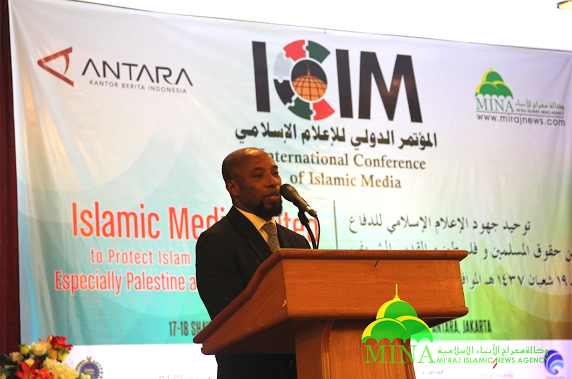


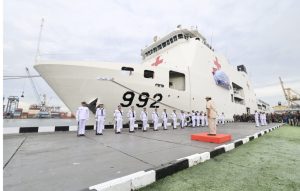








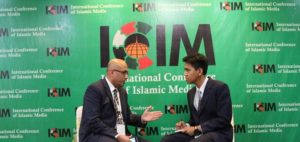
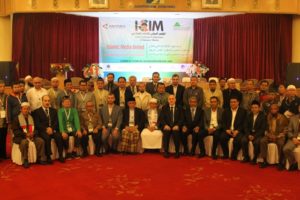
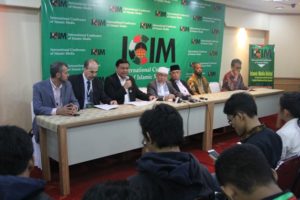















 Mina Indonesia
Mina Indonesia Mina Arabic
Mina Arabic